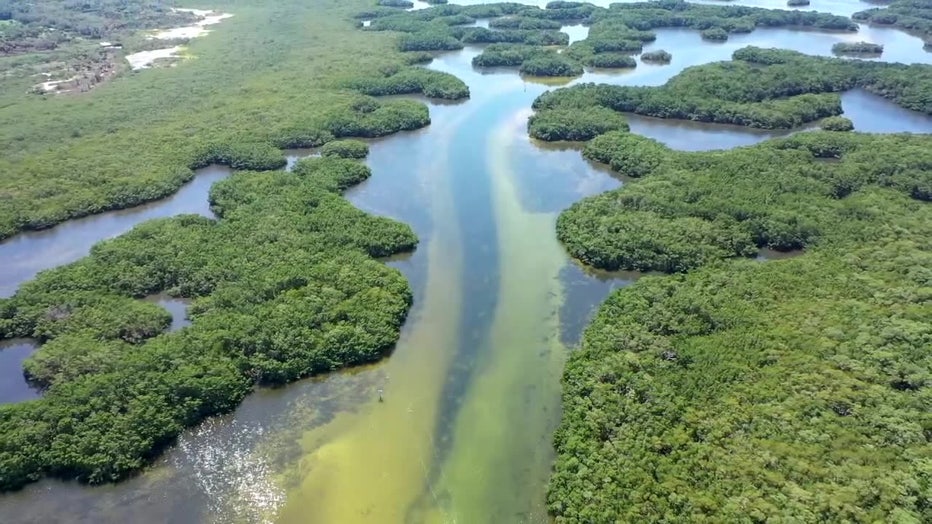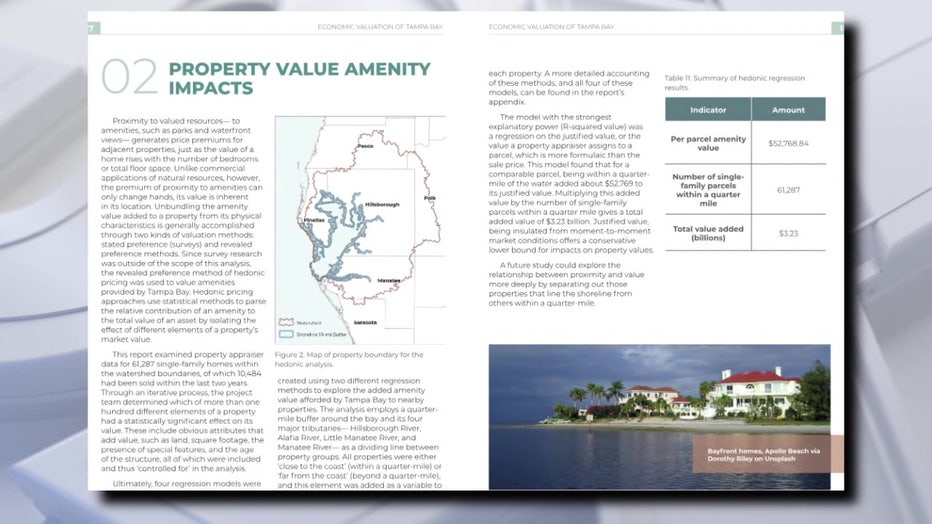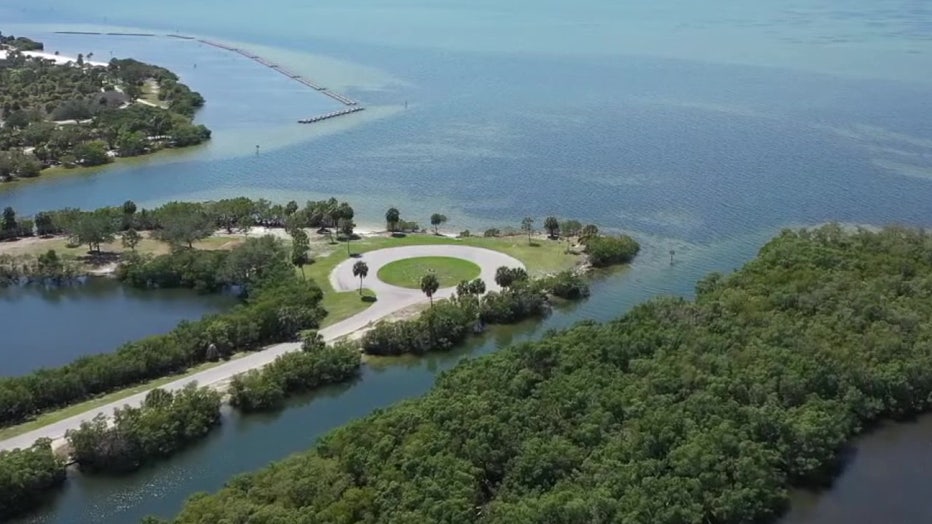Economic benefits of Tampa Bay estuary, reminder to protect the environment
TAMPA, Fla. - A new report highlights the economic benefits of the Tampa Bay estuary.
The report, titled the 2023 Economic Valuation of Tampa Bay, was put together by the Tampa Bay Regional Planning Council (TBRPC) and the Tampa Bay Estuary Program.
"We know that one in every ten jobs throughout the Tampa Bay region is tied to a clean, healthy Tampa Bay," TBRPC executive director Sean Sullivan said.

There's financial benefits of the Bay, according to a new report.
The report breaks down the benefits of the Bay into three categories: economic impact, increased home property values, and ecosystem services.
READ: Feds spread $1 billion for tree plantings among US cities to lower extreme heat, improve health
The research showed that Tampa Bay-dependent industries resulted in 207,068 employees and $32.1 billion dollars in total output. Tourism and marine construction contribute nearly 58% of that $32 billion economic output, according to the Tampa Bay Estuary Program.
As part of the report, environmental planners also analyzed property data for homes near the water.

The 2023 Economic Valuation of Tampa Bay quantifies all the benefits.
"It's about $52,000 in value that we saw added to the average price of a home around Tampa Bay and its rivers," TBRPC senior environmental planner Alana Todd, who is also the lead author of the 2023 Economic Valuation of Tampa Bay, said.
"Those statistics show that the value of Tampa Bay to our region is really critical to our success," Sullivan said.
READ: Bees helping replenish the mangrove population in Tampa Bay
The report also outlines the contributions made by our mangroves, salt marshes, oyster bars, and seagrasses, which includes flood protection benefits.

Property data for homes near the water was also analyzed.
"They're sequestering carbon. They're pulling out pollutants and nitrogen from the water," Todd added.
While the report focuses on quantifying all the benefits, Todd and Sullivan said it also serves as a reminder of the need to protect the Bay moving forward.
"Your average server, the construction worker that you pass as you cross the Howard Frankland: These are people that depend on the Bay. And we want to make sure that they have jobs moving into the future," Todd said.


